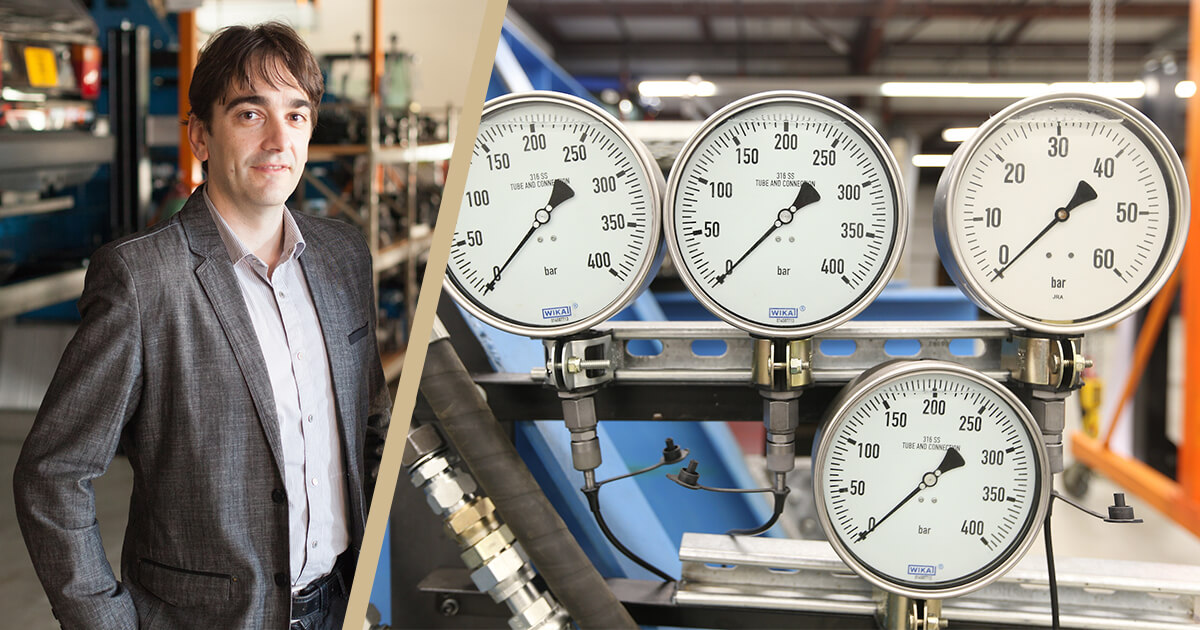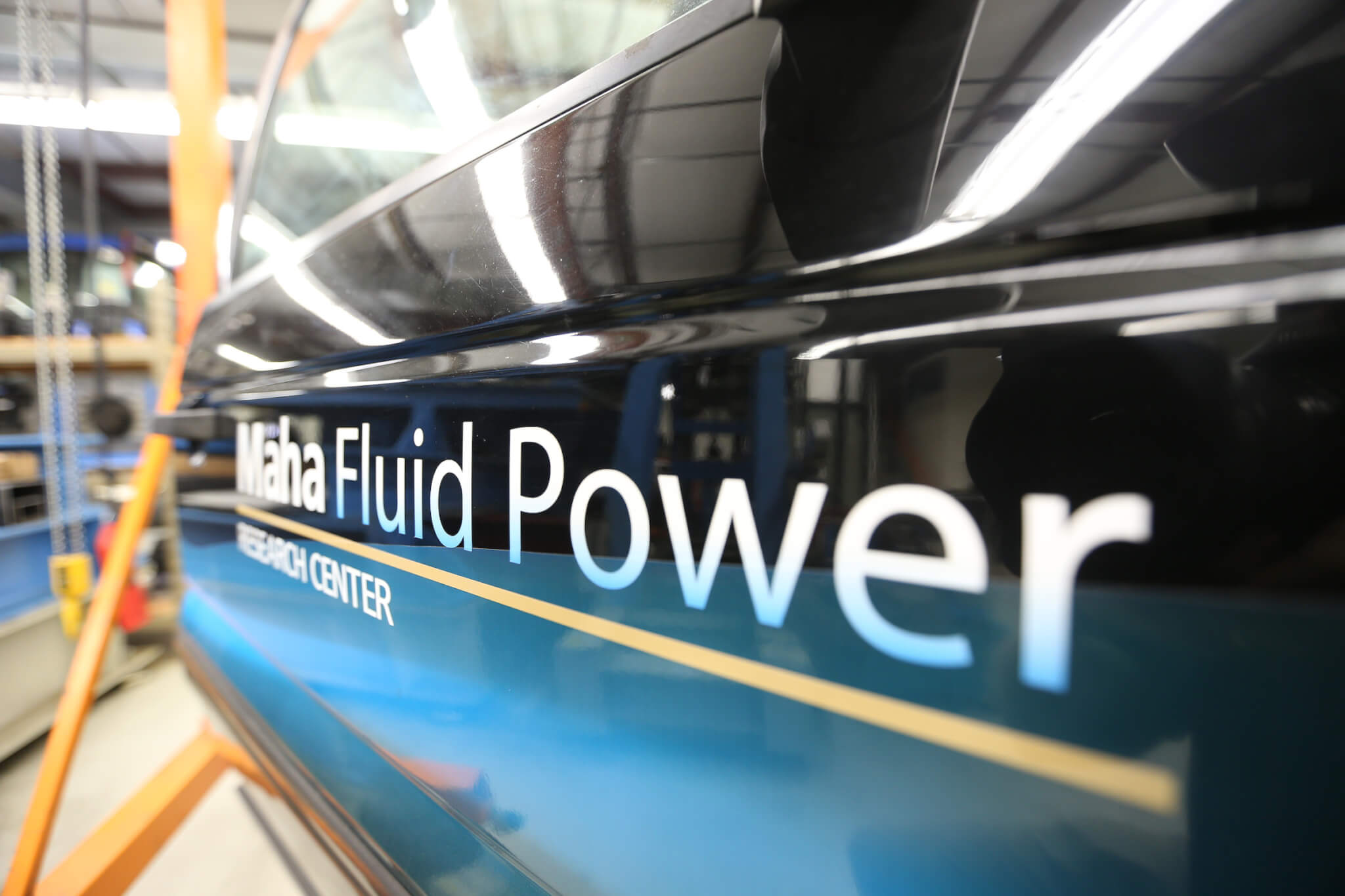During the past few months the Purdue University Board of Trustees ratified endowed chairs for three professors in the College of Agriculture: Songlin Fei, Maria Marshall and Andrea Vacca. This is the third profile we will be publishing on these faculty members.
As a machine systems engineering specialist, Andrea Vacca, professor of agricultural and biological engineering (ABE) and mechanical engineering, understands what makes a machine tick, including the apparatus of interdisciplinary research as well.
The Board of Trustees recently ratified Vaccas as the Maha Fluid Power Faculty Chair, an endowment originated with a donation to Purdue from Otto J. Maha, a fluid power pioneer and a former chief engineer of the Hannifin Company (now Parker Hannifin). Vacca specializes in fluid power research and oversees the largest hydraulics lab in the U.S. His research centers on optimizing the transmission of power from fluids under pressure. These systems have replaced compressed air and water systems and are ubiquitous in industry landscapes, from agriculture to aerospace.
“Fluid power is very interdisciplinary. A single faculty member cannot have all the necessary expertise, which is why collaboration is key for success in this field,” Vacca said. “Purdue is an optimal environment for establishing this collaboration. Most departments in the colleges of agriculture and engineering are top ranked in the country and attract the best research scholars. My work has greatly benefited from this kind of cross-collaboration.”
Vacca said his appreciation for mechanical devices began as a teenager and drove his academic career. Studying the finer points of heat transfer mechanism in gas turbines, he earned his doctorate from the University of Florence, and then taught as an assistant professor at the University of Parma, both located in Italy.
“Northern Italy is one of hottest fluid power areas, being densely populated by successful fluid power industry. The industry contacts I made during the first years of my academic career exposed me to several research problems of fluid power technology,” Vacca said. “During these first research experiences, I realized the tremendous opportunity that still exist to improve the existing technology. At the same time, I found myself more and more passionate on the modeling aspects of fluid power components.”
Vacca also gained an appreciation for what can be accomplished when industry collaborates with research institutions, an integral component of his program and the Maha Fluid Power Plant Research Center. A cross-college initiative of ABE and the College of Engineering, the plant hosts dozens of industry and academic projects, which foster seamless, two-way transfers of knowledge and expertise.
Vacca’s research also focuses on making contributions with real-world impacts. For example, work from his lab includes solutions that reduce fuel consumption by farm machinery as well as machine vibrations and sound emissions. Scholars casually acquainted with the field of fluid power systems consider it a mature field, one with few opportunities for advancement. Not so, counters Vacca.
“There remain many opportunities for breakthrough innovations, which can make fluid power technology more efficient and power dense or more suitable for ubiquitous application. My goal is to contribute to the field by proposing novel ideas and novel approaches of study that can enable discovery from other researchers or industry,” Vacca added.
Key components to Vacca’s research program and the success of the Maha Fluid Power Research Center are the students. Currently, Vacca supervises over 20 graduate students who work in the lab and share responsibilities. He also instituted an informal mentoring system where students who are more senior advise and assist new graduate students.
“Graduate students are essential for my research activities. I always believe that without the great contribution of the students and the center’s wonderful staff none of my research accomplishments would have been possible.”
As the college and university continue to attract world-class students, faculty, researchers and industry leaders, Vacca said, the center will continue to mature and flourish. Already international leaders in fluid power research, specifically hydrostatic pumps and motors and energy saving architectures, Vacca said he still has major ambitions for the center in coming years.
“The next five years will be very exciting years for the Maha Fluid Power Research Center,” Vacca continued. “I envision a growth of the research portfolio of the center. This will be possible through expanding the internal collaborations with Purdue faculty. These collaborations will further expand our leading role with emerging topics of fluid power, such as electrification of hydraulic systems, miniature fluid power components and more.”







